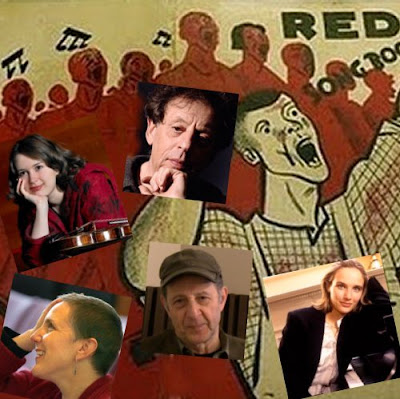Classical's elusive young audience wants chewy music
In his biographical overview Klaus Schulze: Electronic Music Legend Greg Allen explains that:
'I have long thought that when people in the future look at the 'classical' music of our time (mid-20th century through early 21st century), they would view Klaus Schulze's music as the classical music of this era, just as we view Beethoven, Bach and Stravinsky as the 'classical' musicians of their eras'.
Although this can be dismissed as needless hyperbole, the links between Klaus Schulze and classical music cannot be ignored, as this extract from his notes for the album "X" shows.
'Richard Wagner could also have been part of these musical biographies on “X”. Wagner is particularly close to me because for me he was the first to create a synthesis of the arts. For instance he demanded for a composition a separate theatre where the orchestra could disappear in the pit. Therein I see an analogy to the synthesizer. Here the actual instrument is also disappearing behind a few buttons – you’re hearing very much but you don’t see much. But Wagner was a far too tremendous topic because then I would have had to make “X” a triple album. For this reason I had chosen only authors – except Friedemann Bach – who had influenced me very much. Frank Herbert’s novel Dune almost was a bible for me at that time!'
In his book-length meditation on the raga form, novelist and poet Amit Chaudhuri describes how:
'There may be another reason why my aversion to Indian classical music turned to devotion. It has to do with the unpredictability of our lives as readers and writers, listeners and musicians. What's bored us might begin to obsess us. What seemed important might, one day, lose interest. You can't be prepared by education, say, for Indian classical music. A change of direction might occur without warning. You find a point of entry you hadn't been looking for... The point of entry comes unawares, it makes a world or work available you'd had no time for previously'.
The classical music industry spends so much time navel gazing about how to reach new audiences. Yet the points of entry are never debated. The whole classical growth strategy revolves around watering down the product - musicals, film music, crossover, patronising presenters, schlagermusik, mixtapes, etc etc. - to create an anodyne entry point. Straight from the blender music may appeal to a toothless older demographic. But that prized young audience wants chewy music, because they have cut their teeth on recent trance and rave mutations of Klaus Schulze's cosmic rock.
That unpredictability prized by Amit Chaudhuri is being bleached out by a social media culture controlled by filter bubbles, algorithms and the tyranny of 'likes'. We are losing those invaluable unannounced changes of direction, such as the one I experienced recently. Until then I had little time for Brian Eno's ambient essays. The chance purchase of his 6 CD box Music for Installations in the Netherlands a few years back triggered, without warning, a point of entry into electronic deep listening. This led me to the deep listening experiences of Robert Rich in Morocco's Atlas Mountains, to John Luther Adams on the south coast of Crete, and now to this post. What bored me has begun to obsess me, and what seems important to other cultural commentators no longer interests me.










Comments